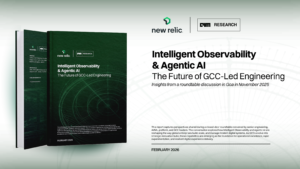The realm of accounting is often perceived as a monotonous world filled with manual tasks, where month-end and quarter-end closings can evoke dread among finance professionals. This frustration became a catalyst for Parker Gilbert, who, in 2020, co-founded Numeric after experiencing the inefficiencies of traditional accounting processes while managing finance at an early-stage startup. His vision was clear: to create a software platform that would automate the book-closing process, alleviating the burdens faced by accountants everywhere.
Fast forward a few years, and Numeric has emerged as a formidable player in the accounting technology space, fueled by advancements in generative AI. The platform is now trusted by leading companies such as Brex, OpenAI, Plaid, and Wealthfront to streamline their accounting workflows. Recently, Numeric’s impressive growth trajectory attracted significant investor interest, culminating in a substantial $28 million Series A funding round, just five months after securing $10 million in seed funding. This latest investment round was spearheaded by Menlo Ventures, with new investors IVP and Socii joining the ranks of previous backers, including Founders Fund, Long Journey, 8VC, Friends & Family Capital, and Fifth Down.
The Magic Behind Numeric’s Automation
Numeric’s innovative approach allows accounting teams to save critical time in their monthly closing processes. By automating data aggregation and reconciliation from various accounting systems and Excel spreadsheets, Numeric significantly reduces the manual effort involved. The platform employs an AI agent to analyze monthly changes in line items and performs a flux analysis, which identifies unusual variations and provides explanations. For instance, if the AI agent detects an increase in legal expenses, it would generate a detailed commentary, such as, “Your legal expenses rose this month due to an additional payment of $X to Wilson Sonsini for your funding.” This feature allows accountants to focus on strategic decision-making rather than spending hours documenting variances.
Despite concerns regarding AI hallucinations—where an AI might generate incorrect or misleading explanations—Gilbert emphasizes that Numeric has addressed these issues by embedding verification links in its reports. This feature ensures that accountants can validate the AI’s insights, promoting transparency and accuracy.
While generative AI is not yet responsible for the calculations and tie-out processes within Numeric, Gilbert is optimistic about future enhancements. He envisions integrating large language models (LLMs) into the platform, capitalizing on their proven ability to synthesize vast amounts of data, which he believes will only improve over time.
Standing Out in a Competitive Market
Croom Beatty, a partner at Menlo Ventures, recognized Numeric’s potential to disrupt the accounting software market. After extensive searches for startups that could transform this sector, he found Numeric’s innovative blend of complex workflows and data management capabilities to be a game-changer. He noted that accounting has been an underserved market, and Numeric’s unique position gives it a competitive edge. Beatty predicts that the company may expand into financial planning and analysis tools, a sector currently dominated by Anaplan.
Numeric’s growth potential is underscored by its competition with established players like BlackLine and FloQast, the latter being an 11-year-old startup valued at $1.6 billion during its recent Series E funding. However, Beatty asserts that Numeric’s integration of AI into accounting processes is complex and challenging to replicate, setting it apart from other market entrants.
The advancements in AI technology present an opportunity not just for incremental improvements but for a fundamental reimagining of accounting workflows. As AI becomes increasingly sophisticated, accountants will transition from data preparers to strategic reviewers. Rather than sifting through disconnected data, they will collaborate closely with stakeholders across organizations, positioning themselves as architects of their companies’ financial systems.
Gilbert highlighted the importance of empowering accounting teams to move beyond mere scorekeeping, enabling them to provide valuable insights and guidance that drive business growth. This transformation requires ongoing investment in research and development, and Gilbert expressed excitement about Numeric’s commitment to expanding its team of talented accountants and engineers.
Future Ahead
The recent $28 million Series A funding is not merely a financial milestone; it validates Numeric’s impact on the accounting sector and reflects the culture of innovation within the company. The founders believe that successful scaling will require continued hard work, a commitment to their vision, and the same principles that brought them this far.
As Numeric forges ahead, the company aims to leverage financial data as a powerful, real-time asset for businesses, ensuring faster month-end closings and enhanced decision-making processes.





